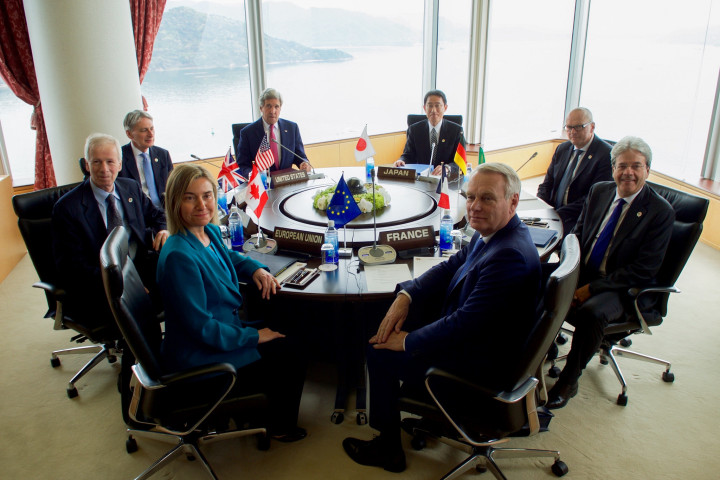From Wildfire>_ News.
Earlier this week, foreign ministers of the G7 met in Hiroshima. The highly symbolic setting, coupled with signals from Japan’s foreign minister Fumio Kishida (who is from Hiroshima) that Japan would push for a renewed commitment on nuclear disarmament, led to some excitement in anticipation of the event.
But not here at Wildfire>_. We knew it would amount to nothing, since the G7 consists of three nuclear-weapon states and four weasels. What could we expect, but more commitments to implement commitments? Parliamentarians for Nuclear Non-proliferation and Disarmament (PNND) tweeted “Time to commit to nuclear abolition”. But the G7 members have already committed to nuclear abolition – on many occasions. They just haven’t done it.
We were impressed, however, that not only did the G7 Hiroshima Declaration not move forward in any sense, it actually retreated from existing commitments. Here is the part on nuclear disarmament:
In this historic meeting, we reaffirm our commitment to seeking a safer world for all and to creating the conditions for a world without nuclear weapons in a way that promotes international stability. This task is made more complex by the deteriorating security environment in a number of regions, such as Syria and Ukraine, and, in particular by North Korea’s repeated provocations.
Compare this woolly and heavily qualified waffle with the consensus outcome of the 2010 NPT review conference:
The Conference reaffirms the unequivocal undertaking of the nuclear-weapon States to accomplish the total elimination of their nuclear arsenals leading to nuclear disarmament, to which all States parties are committed under article VI.
And with US president Barack Obama’s famous Prague speech of 2009:
So today, I state clearly and with conviction America’s commitment to seek the peace and security of a world without nuclear weapons.
So the G7, which in 2010 was unequivocally committed to the total elimination of nuclear arsenals, is now only committed to “creating the conditions for a world without nuclear weapons”. The commitment to seeking the peace and security of a world without nuclear weapons appears to have been replaced by a commitment to seek the peace and security the G7 judge necessary for a world without nuclear weapons. One small change in text, one giant leap backwards for nuclear disarmament.
So is it any wonder that non-nuclear-weapon states are now looking seriously at going ahead without the nuclear-armed states to negotiate a treaty banning nuclear weapons? The nuclear-armed states and weasels still seem to be in denial about this. At least two years after the idea took shape, they are still floundering and incoherent in their response to it. Here’s US secretary of state John Kerry explaining to the media in Hiroshima why a ban treaty is a bad idea:
some countries, and I understand the emotion of it, want to just outlaw every nuclear weapon tomorrow. I understand why people want to do that. But to do that without working through all of these other things that we know we have to work through is not to make the world safer. This has to be done, and we’re for it, but it has to be done in a way that works up to the capacity to accept that you, in fact, are not making the world more dangerous because you’ve done away with a level of deterrence for activity, you’re actually making the world safer.
Persuaded? We might be if we could make head or tail of it. After two years of careful thought, the State Department has managed to refine its case against the ban treaty into, well, gibberish.
And what does all this mean for non-nuclear-weapon states? It’s yet another crystal clear sign: you cannot wait for the nuclear-armed states. You need to go ahead and negotiate a treaty banning nuclear weapons.










